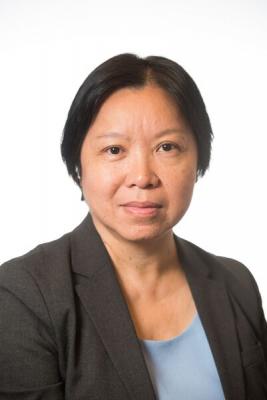Leung Receives the AMS Hydrologic Sciences Medal
The American Meteorological Society (AMS) has announced winners of its 2022 awards and honors, including the Hydrologic Sciences Medal recipient, L. Ruby Leung of Pacific Northwest National Laboratory (PNNL).
A Battelle Fellow at PNNL, Leung was cited by AMS “for ingenious, groundbreaking contributions which enhance the modeling of land-atmosphere interactions and the hydroclimate.”
AMS’s Hydrologic Sciences Medal is presented to researchers who make outstanding contributions to scientific knowledge in hydrology, hydrometeorology, and/or hydroclimatology, including interactions between the land surface and the atmosphere. It represents the highest award the Society can bestow upon an individual in the hydrologic sciences.
“I was delighted but surprised to be named for this honor,” says Leung, noting that she is deeply honored to receive an award that not only recognizes her own research but the accomplishments of the many science teams with whom she has collaborated. “Since I joined PNNL, I have been very fortunate to have the Department of Energy (DOE) support my research interests, and for that, I am very thankful.”
Leung’s early work—then supported by the National Oceanic and Atmospheric Administration (NOAA), the National Aeronautics and Space Administration (NASA), and the U.S. Environmental Protection Agency (EPA)—focused on hydroclimate and how mountain water resources vary and change over time. This research, she says, leveraged and strengthened capabilities she developed for high-resolution climate modeling and coupling of land-atmosphere processes to understand and predict hydroclimate and its extremes at the nexus of land, water, and atmosphere.
“To support the Department of Energy’s mission, there is a need to improve understanding of how climate change may affect the nation’s energy infrastructure and energy production and use,” she explains. “This has motivated our efforts to model land-river processes and the impacts of human activities such as irrigation and water management, as energy and water are closely connected.”
Today, one of Leung’s central roles is chief scientist for the Energy Exascale Earth System Model (E3SM) project, DOE’s state-of-the-science modeling project designed to represent coupled human-Earth system processes to address the grand challenge of actionable predictions of Earth system variability and change and to optimize the use of DOE’s next-generation high-performance computers.
“With increasing extreme events in the U.S. and around the world, there is an urgent need to improve understanding and modeling of what are driving these changes and how they may change in the future,” notes Leung.
As the principal investigator of the Water Cycle and Climate Extremes Modeling (WACCEM) science focus area, she and her team use innovative analysis and modeling to study hydroclimatic extreme events, such as atmospheric rivers, tropical cyclones, mesoscale convective systems, heatwaves, and wildfires.
In addition to her work in modeling, Leung’s current research broadly cuts across multiple areas in the analysis of climate and the hydrological cycle and land-atmosphere interactions, including orographic processes, monsoon climate, weather and climate extremes, land surface processes, and aerosol-cloud interactions.
In addition to her roles with E3SM and WACCEM, Leung is active across DOE’s Earth and Environmental Systems Sciences (EESM) program, serving as:
Co-Principal Investigator for:
- Integrated Coastal Modeling (ICoM) laboratory project
- A Framework for Improving Analysis and Modeling of Earth System and Intersectoral Dynamics at Regional Scales (HyperFACETS) cooperative agreement project
Project participant for Laboratory-led projects:
- Cloud-Resolving Climate Modeling of the Earth’s Water Cycle project
- Next Generation Ecosystem Experiment – Tropics project
Project participant for university-led projects:
- The Role of Deep Convection and Large-scale Circulation in Driving Model Spread in Low Cloud Feedback and Equilibrium Climate Sensitivity project
- Coupling of Land and Atmospheric Subgrid Parameterizations (CLASP) project
- 3-D Land Energy and Moisture Exchanges: Harnessing High Resolution Terrestrial Information to Refine Atmosphere-to-Land interactions in Earth System Models project
- Madden-Julian Oscillation, Tropical Cyclones, and Precipitation Extremes in E3SM project
Leung will accept the Hydrologic Sciences Medal in January 2022 at the AMS’s 102nd Annual Meeting in Houston.

